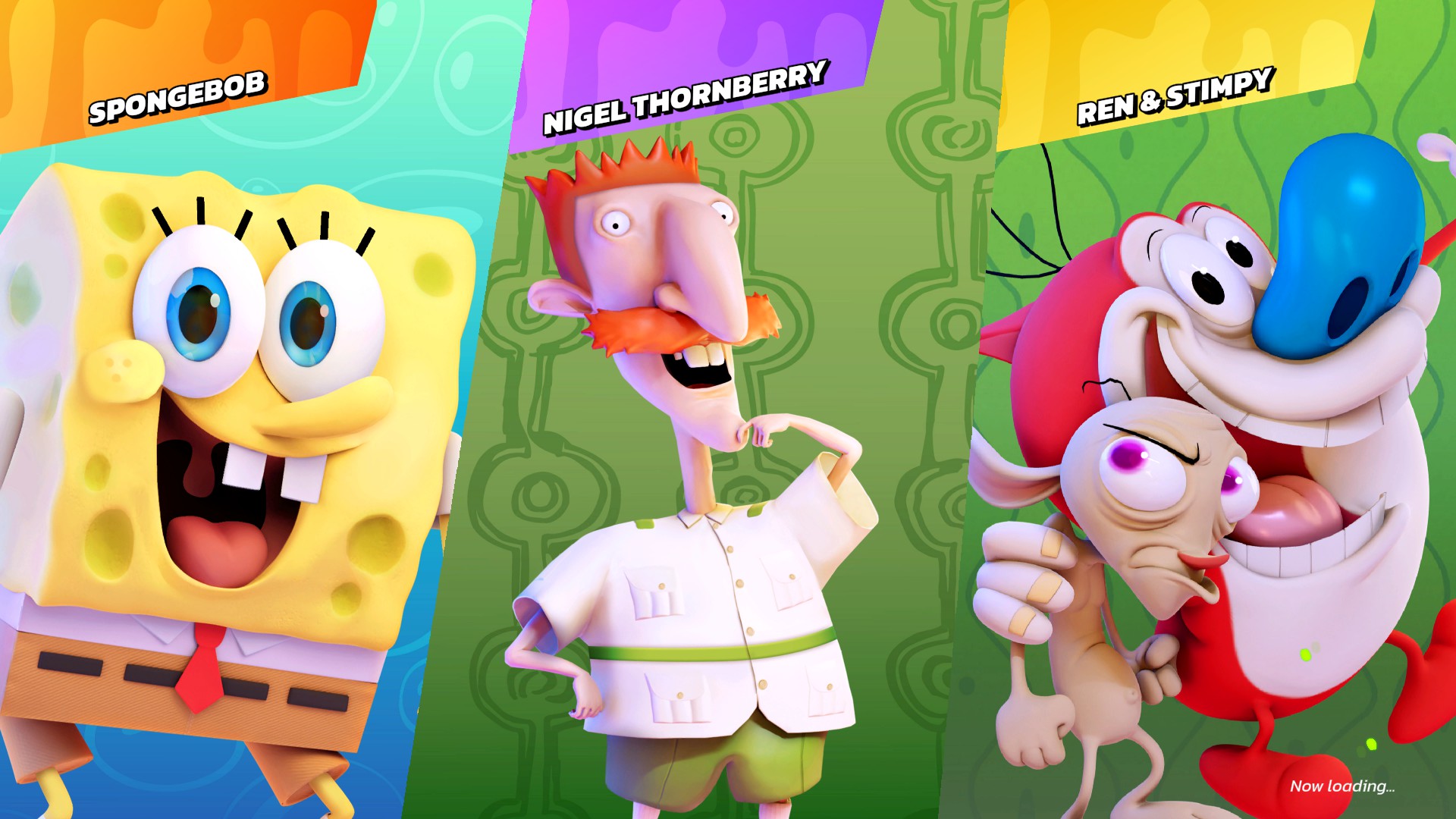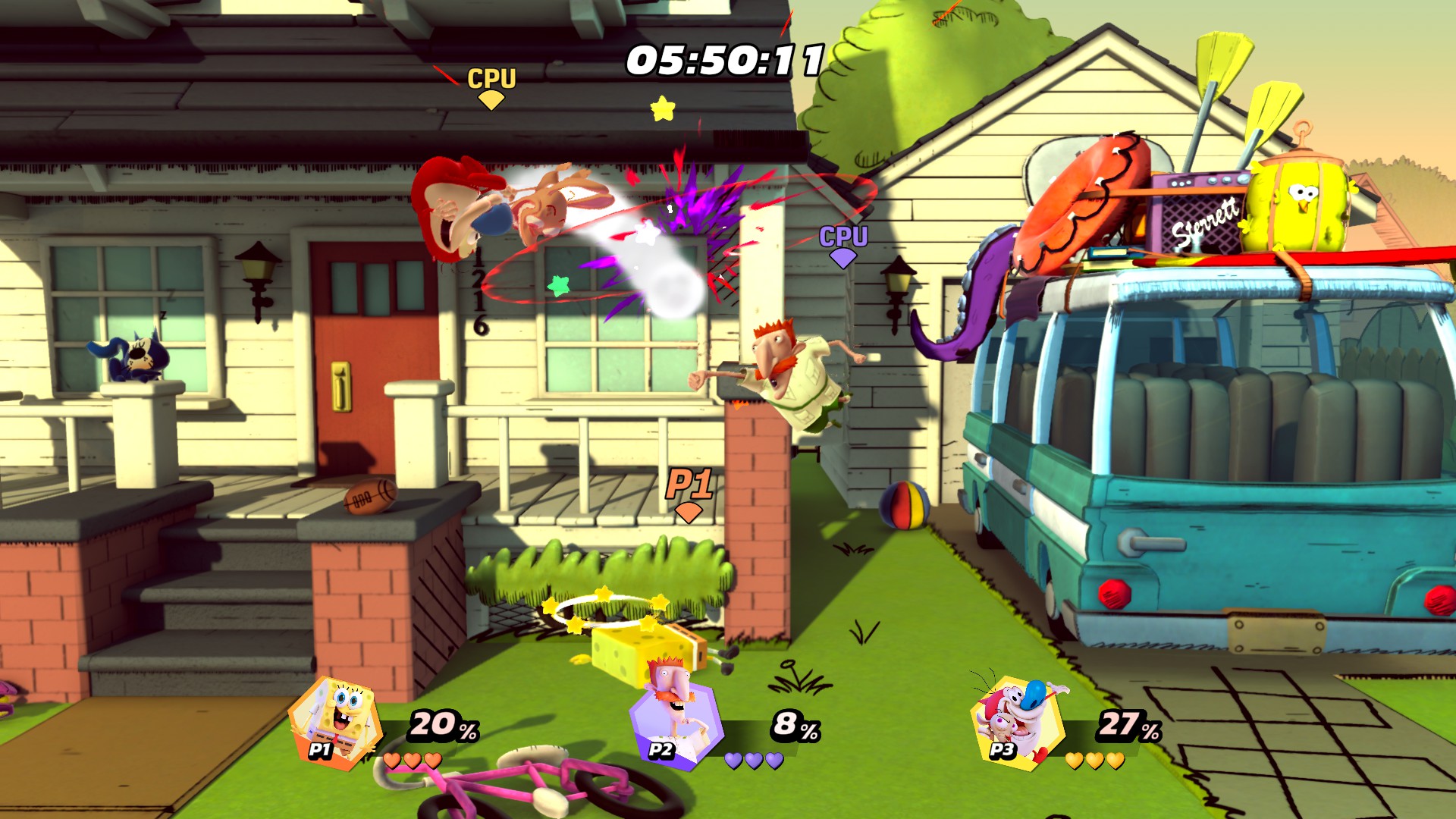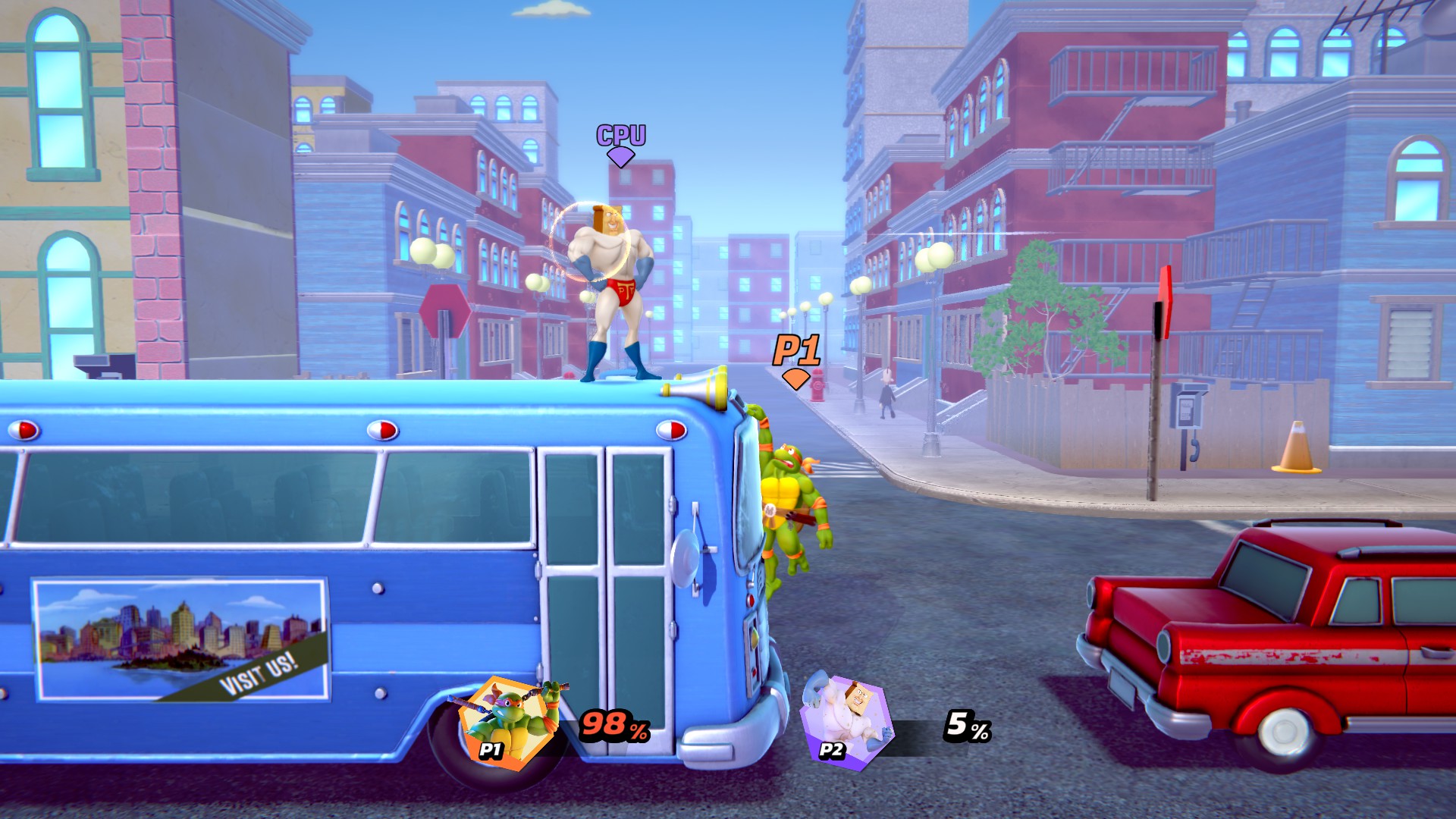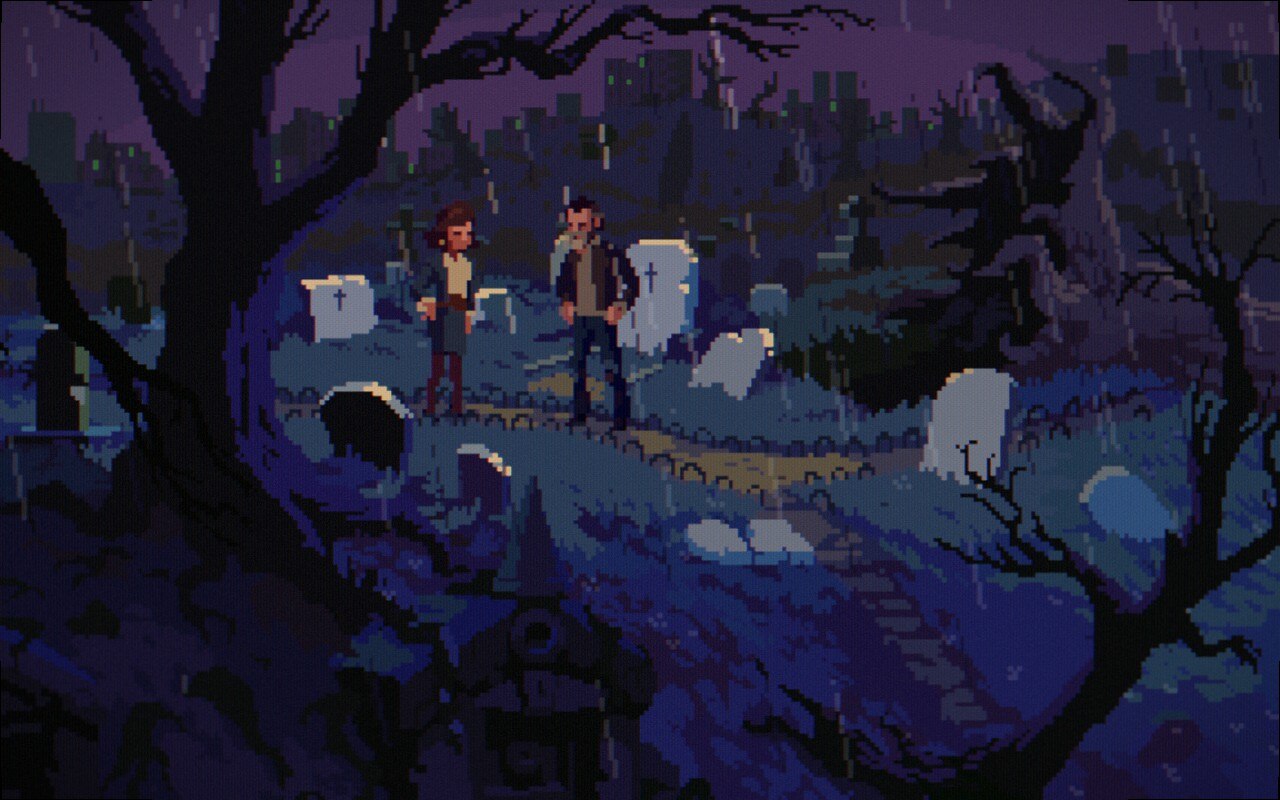Nickelodeon All-Stars Brawl's PC version is a shoddy piece of work
And will stop it becoming a smash.

I am a grown man and proud to admit I was looking forward to Nickelodeon All-Stars Brawl. I like Smash Bros., I used to watch Nickelodeon when I was a kid, and it's got the turtles in it: what's not to like? The answer, it turns out, is a lot.
Nickelodeon All-Stars Brawl is a pretty barebones game at launch: the singleplayer modes and the training option are, to be polite, basic, and the focus is entirely on competitive play. Which is fine to an extent, though probably a bit disappointing for folk who want to play solo.
The game itself plays like a faster Smash Bros., and can be fun! The combos are ludicrous, the characters are animated wonderfully and the stages are funny. I didn't really know what I was doing in my first few matches but Spongebob got dunked in a cereal bowl and I liked it. The bigger issue though is just what is (or isn't) around this core.
A great deal has been made of the game featuring rollback netplay, which in theory should lead to a smoother online experience. In practice I've been encountering a fair amount of lag, framerate drops, and opponents teleporting from position to position. Some matches are completely fine; some are unplayable.

What absolutely blew me away, however, is the lack of customisation options in the game. The game supports a controller or keyboard and mouse: to change the default controller binds you have to go into Steam's controller overlay, there is no option to do it in-game. Embarrassingly, a lot of the early guides for the game are just about how to do this. You can rebind the mouse and keyboard, but it's hidden in the character select screen and you can't change the movement keys from the default arrow keys.
Universal controls in a fighting game in 2021?!? This is absolutely crazytown.
At launch Nickelodeon All-Stars Brawl had a temporary stint on the Steam best-sellers list, and seemed to have a healthy concurrent playercount of between 7-8,000 players. Those figures have subsequently gone off a cliff, and a week after launch you're lucky to find a few hundred players (which may be contributing to the less-than-ideal online experience).
Keep up to date with the most important stories and the best deals, as picked by the PC Gamer team.
Maybe it's just that, after your first nostalgia hit of Michelangelo, the charm quickly wears off. The omission of items entirely flags up one of the things that Smash gets bang-on and All-Stars seems to completely miss: the joy of a catalogue as deep as this. Smash Bros. is like Nintendo's own love-letter to fans, delving into every corner of the company's rich heritage to find an assist character, or a theme tune to remix, or an unexpected new character (the fact they eventually got Mr. Game & Watch in there, and did it so well, always makes me smile).

This doesn't have that same attention to detail although, to be fair about it, the developer can only work with the resources it has and what Nickelodeon allows it to do. The roster is focused on three main series, with a few outliers, and plenty of fans are disappointed about the lack of this or that character, nevermind the universal wail about the lack of voice acting (again: the developer's hands were probably tied here). This was always somewhat unfairly presented as a Smash competitor, simply because the comparison is so obvious, but all it really ends up doing is reminding you what Smash gets right.
I don't think Nickelodeon All-Stars Brawl is a disaster: the combat feels like a decent foundation, I like the art style, and it's a license with enormous potential for a knockabout brawler. This ain't it, though, and the PC version is impossible to recommend: I really did feel 20 years younger when I realised what a faff the keybinding stuff is.
This game feels like it was rushed to launch when what it could really have used was more time in the oven, and is perhaps a victim of that modern perception that games can be launched and then updated. But that first impression is always going to count. It all brings to mind another part of Nintendo history: As Shigeru Miyamoto said of Ocarina of Time: "a delayed game is eventually good. A bad game is bad forever."

Rich is a games journalist with 15 years' experience, beginning his career on Edge magazine before working for a wide range of outlets, including Ars Technica, Eurogamer, GamesRadar+, Gamespot, the Guardian, IGN, the New Statesman, Polygon, and Vice. He was the editor of Kotaku UK, the UK arm of Kotaku, for three years before joining PC Gamer. He is the author of a Brief History of Video Games, a full history of the medium, which the Midwest Book Review described as "[a] must-read for serious minded game historians and curious video game connoisseurs alike."

